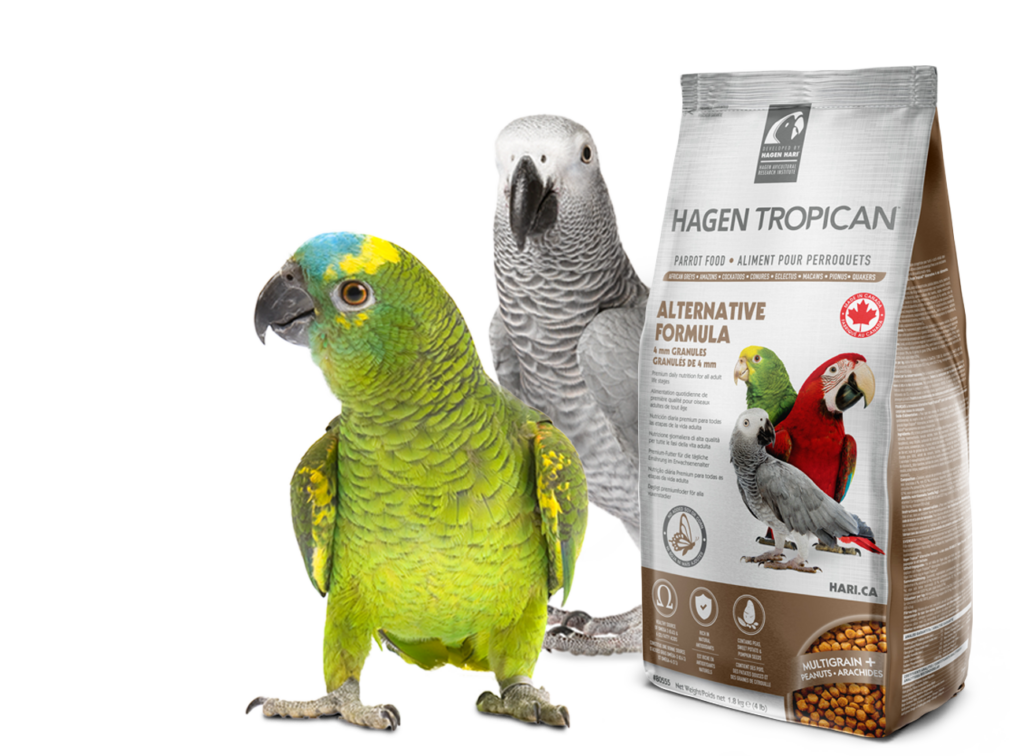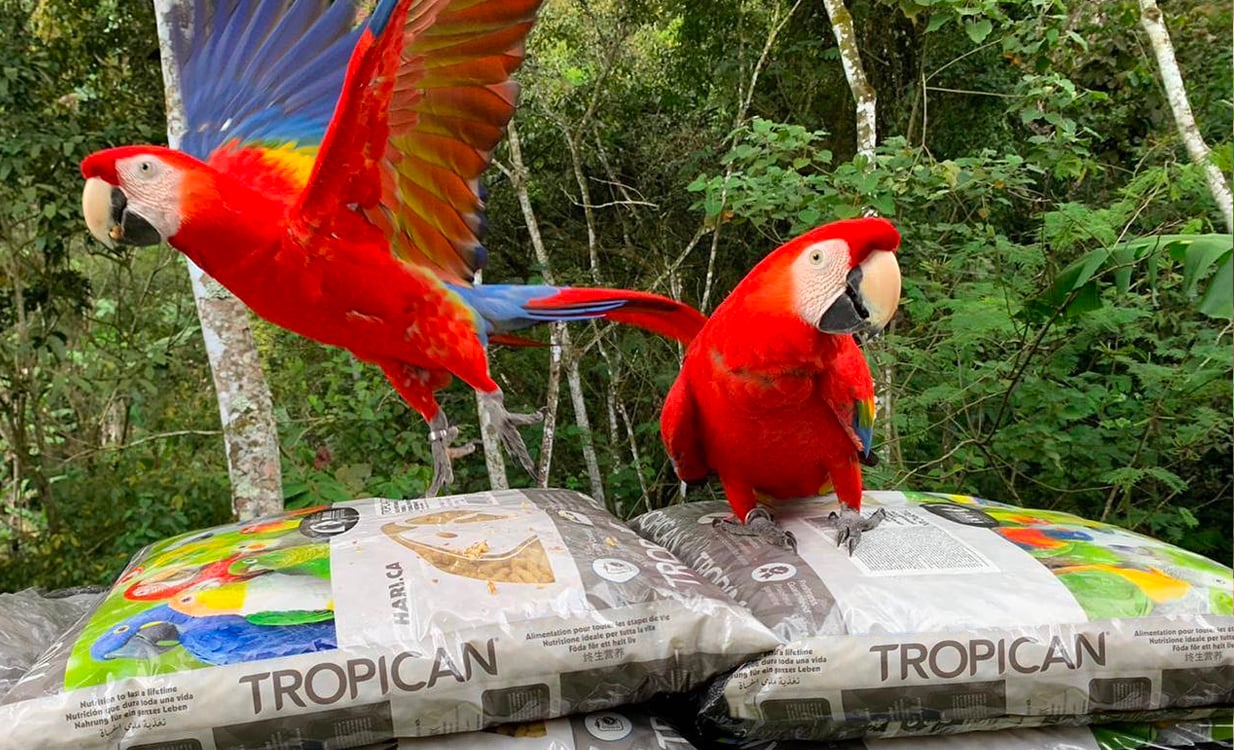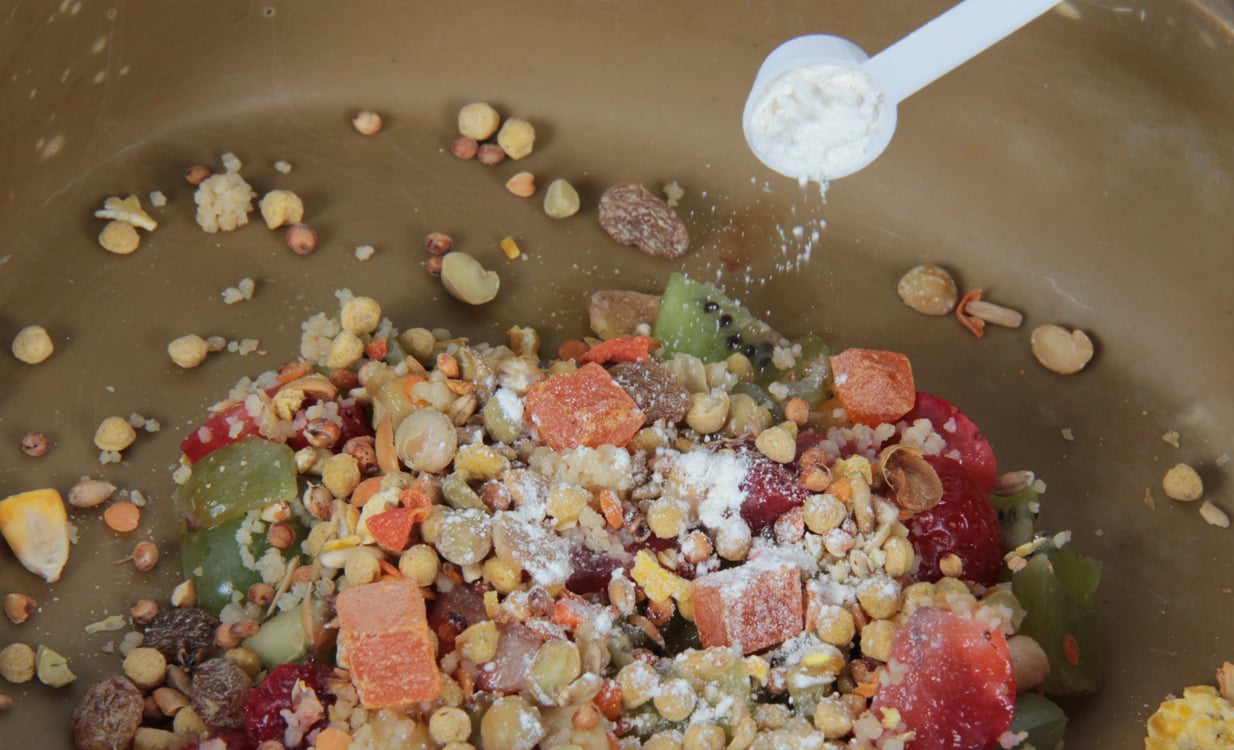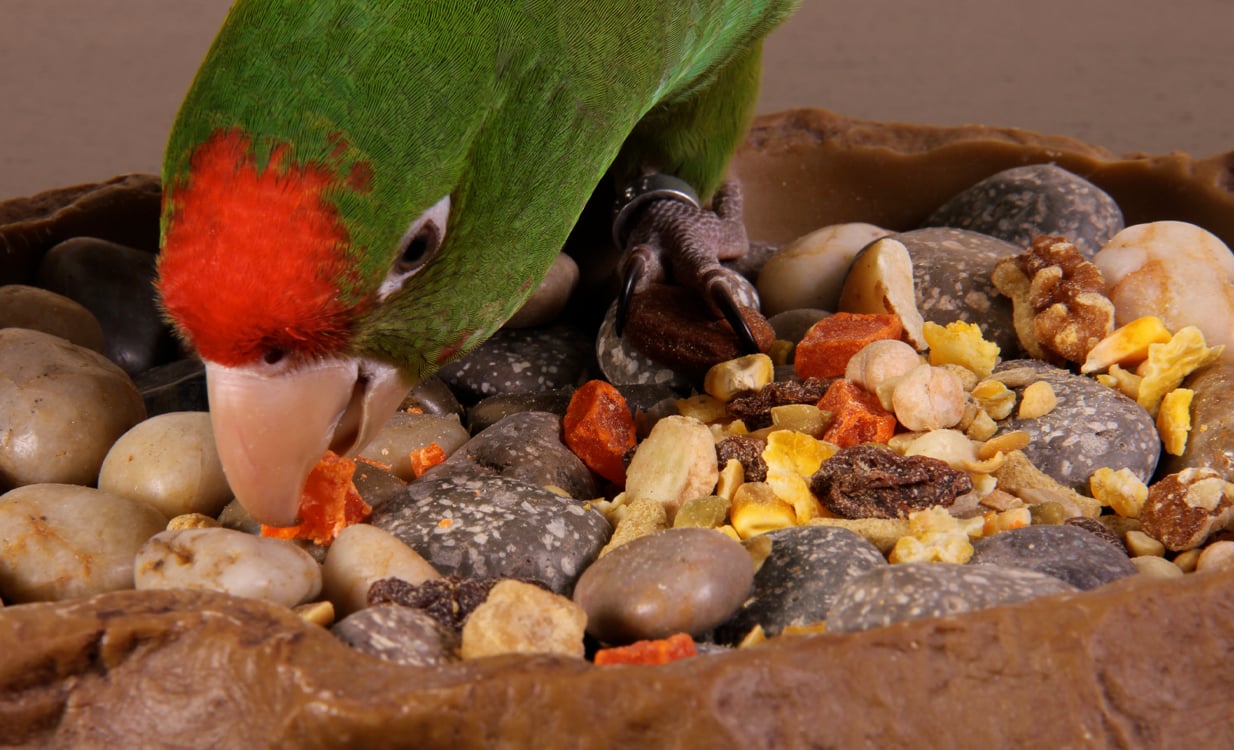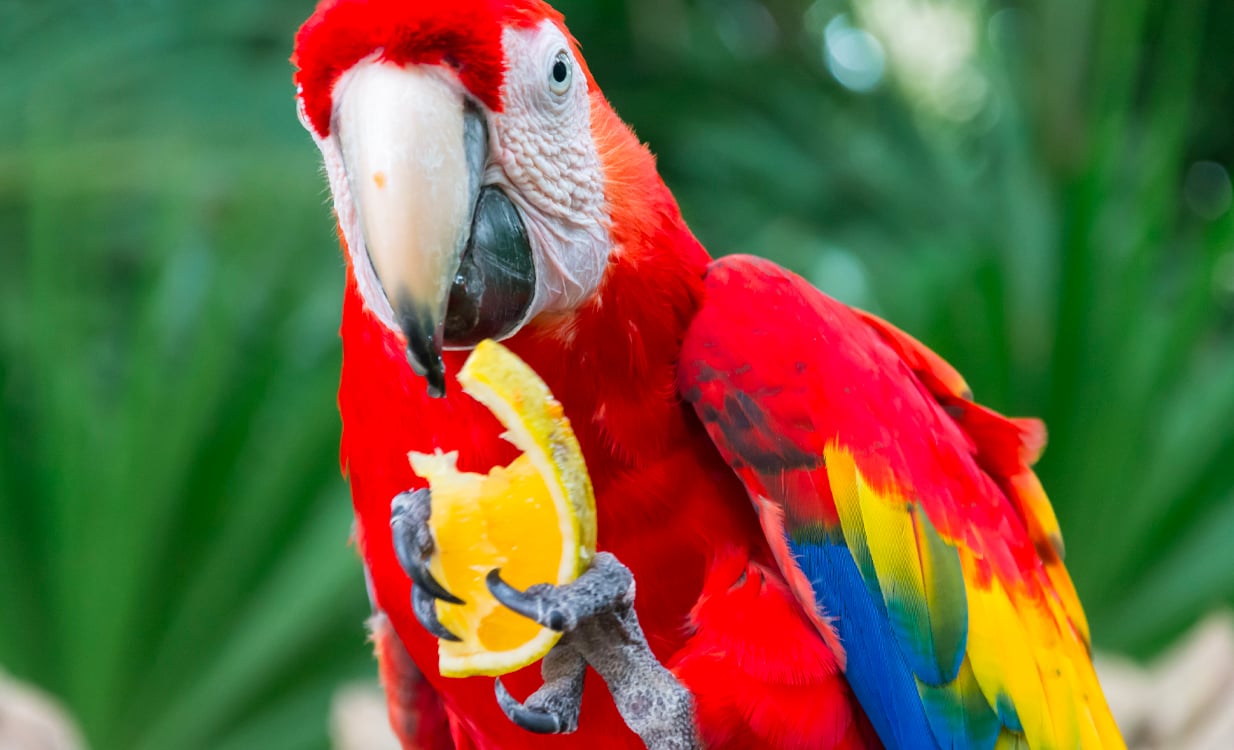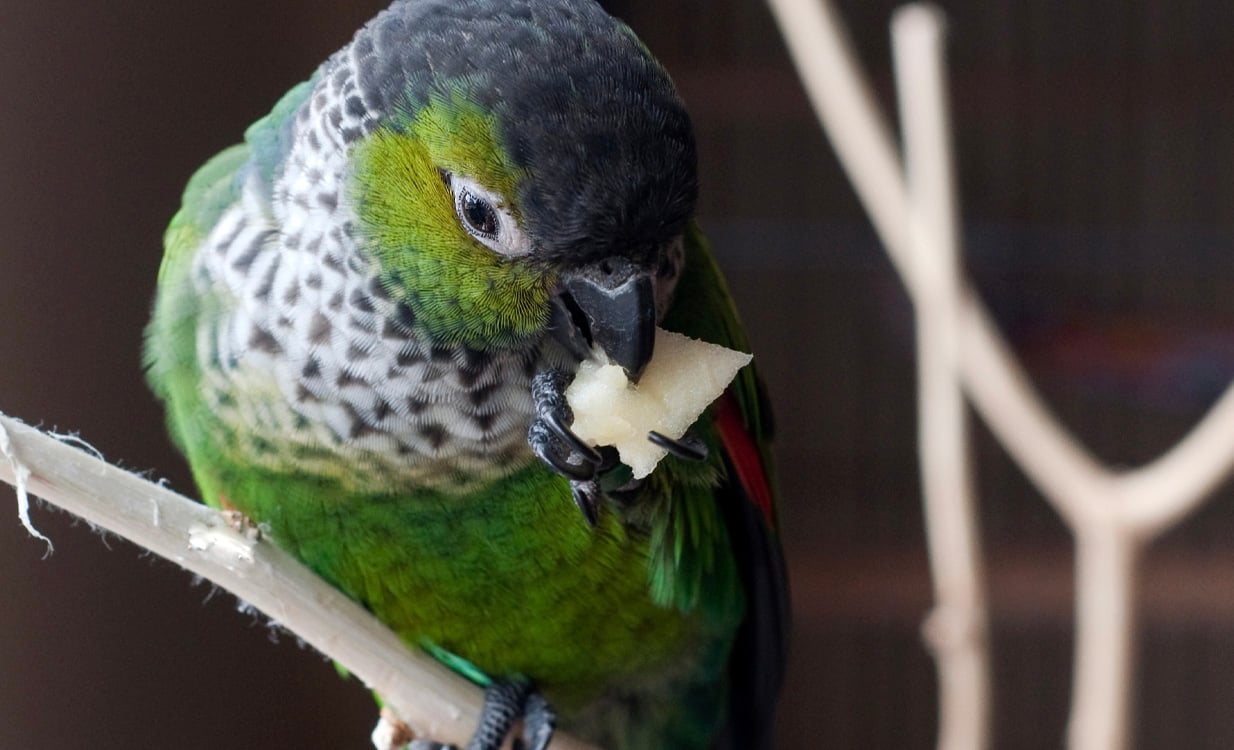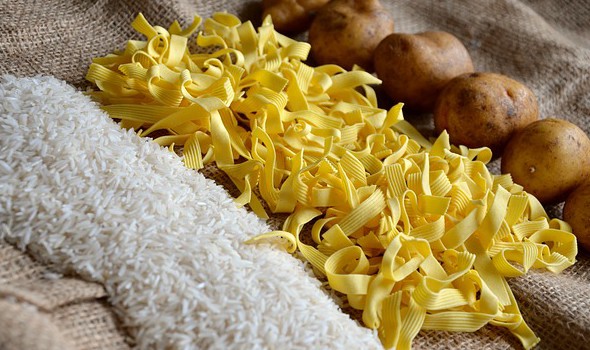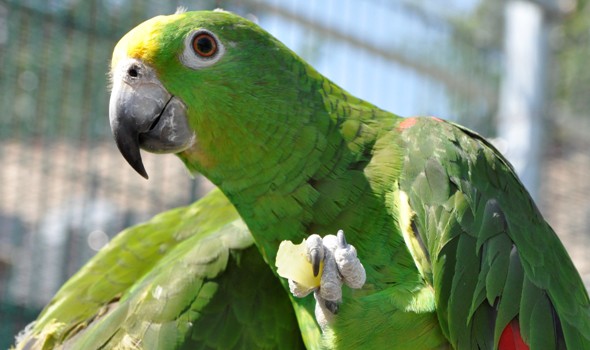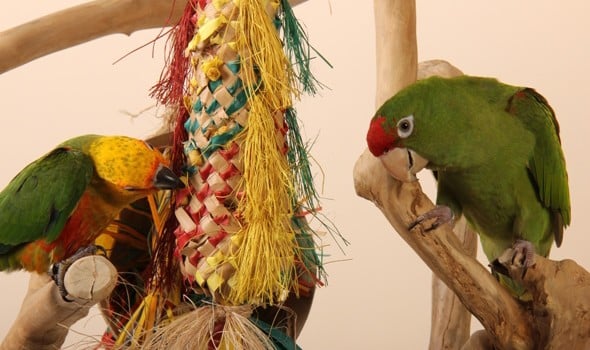Your cart is currently empty!

Healthy Source of Omega 3 and 6 Fatty Acids

Rich in Natural Antioxidants
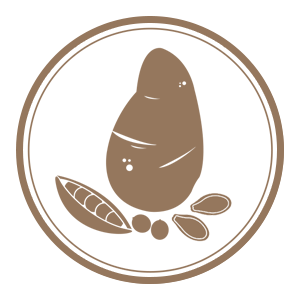
Contains Peas, Sweet Potato and Pumpkin Seeds
Available Products
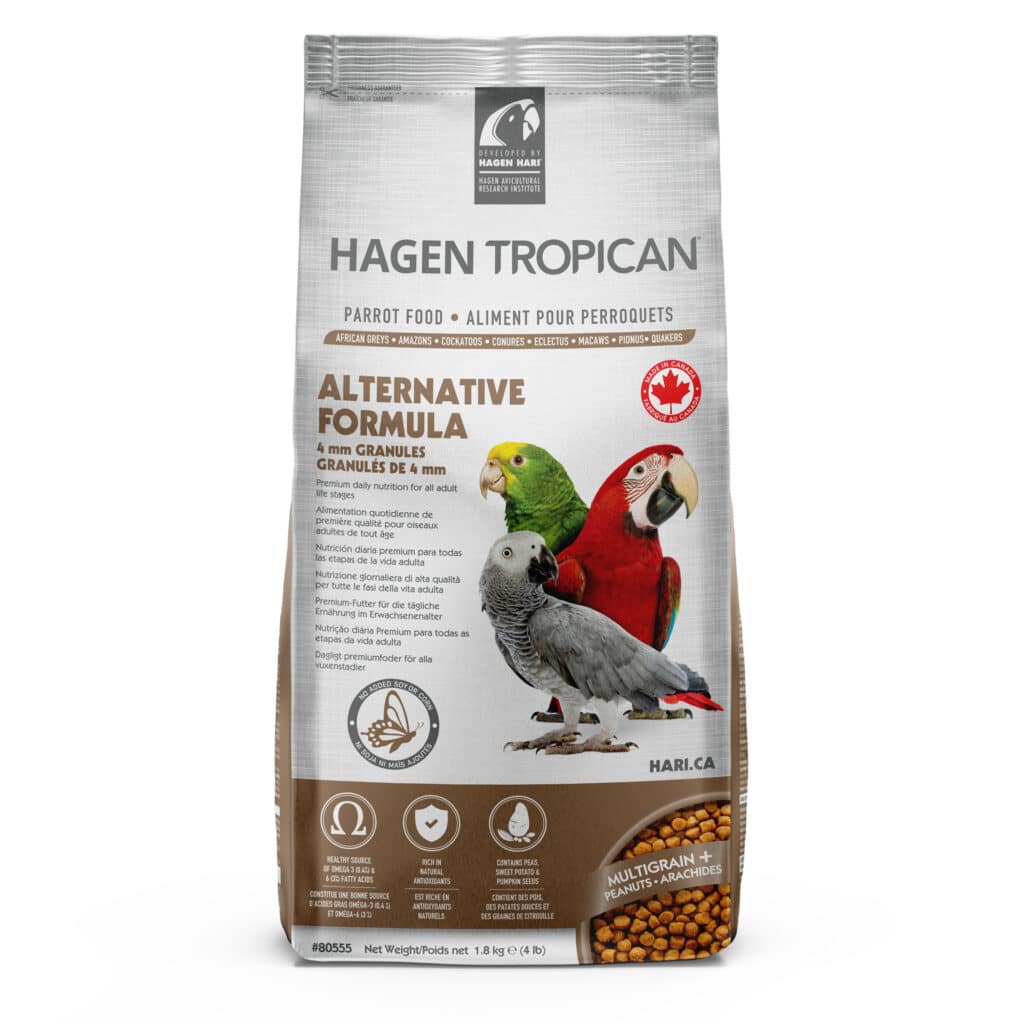
Tropican
Alternative Formula for Parrots, 4 mm Granules
Tropican Alternative Formula provides proper daily nutrition for all Adult and Senior Parrots. It also supports parrots that have different nutritional needs as they age, or parrots that have digestive challenges or have less active lifestyles, or have protein sensitivities.
Keep Learning
Tropican Alternative Formula
A Premium Soy and Corn-Free Parrot Food
with Alternative Protein Sources
Formulated for Adult and Senior Birds
Tropican Alternative Formula is a protein-rich diet designed specifically for adult and senior companion birds. This soy-free formula with 15% protein is a great option for birds with dietary restrictions, lower protein and fat requirements, or protein sensitivities, as well as those with less active lifestyles. Rich in peas and quinoa as alternative sources of high-quality protein, this diet is nutritionally balanced and easily digestible. Peas are an excellent source of protein due to their high digestibility score, and when combined with other plant-derived proteins such as wheat and brown rice found in Tropican Alternative Formula, they provide a complementary amino acid profile for optimal muscle repair, growth, and overall health.
Alternative Formula is formulated to support a healthy body and nourish the skin and feathers of parrots through natural ingredients high in Omega fatty acids. It includes bentonite clay, rosemary extract, and sweet potato to assist with ailments in diet-challenged parrots. Additionally, the formula includes peanuts, sweet potatoes, and pumpkin seeds to increase palatability.
Tropican Alternative food is packed with antioxidants such as cranberry, green tea, and marigold extract, dried kelp, tomatoes, maple syrup, and walnuts for optimal health and feather quality. It also contains healthy carbs like wheat, brown rice, sweet potato, barley, pumpkin seeds, and maple syrup for energy, disease prevention, and digestive health. Additionally, it is a good source of vitamins and minerals such as Vitamins E, B12, A & D3, Calcium, Folic Acid, Niacin (Vitamin B3), Zinc, and Beta-carotene.
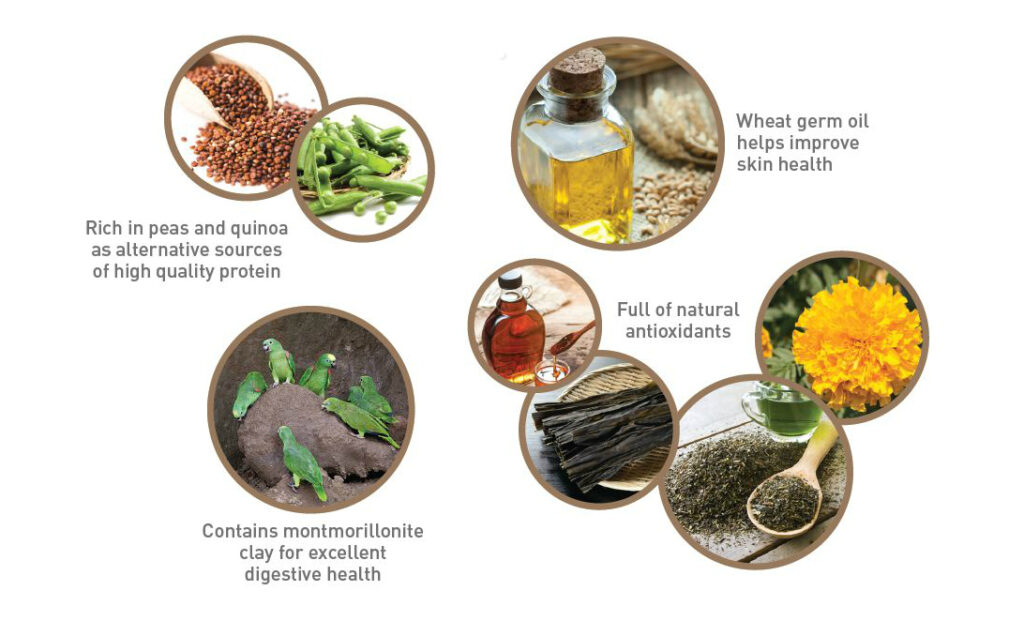
Enhance Your Parrot’s Diet with Tropican Bird Food
Did you know that parrots have more taste buds than chickens do? So why do many bird diets on the market look and taste like chicken feed? That’s where Tropican Alternative comes in – it offers superior taste and palatability that parrots crave.
Tropican’s blend of eight multigrains and human-grade peanuts make for a delicious and nutritious meal that parrots will love. Unlike farm pellets, Tropican’s granules break cleanly and don’t crumble into fine powder, resulting in significantly less wastage.
For bird owners who struggle to provide their feathered friends with a uniform, formulated diet, Tropican’s generous levels of important nutrients allow for enrichment by the addition of fruits and vegetables (generally around 30% of the total quantity of food). Plus, Tropican’s hard, dense morsels make for an enjoyable biting experience, ensuring even fussy eaters receive a balanced diet. With incorporated vitamins and minerals, Tropican eliminates the need for additional vitamin supplements.
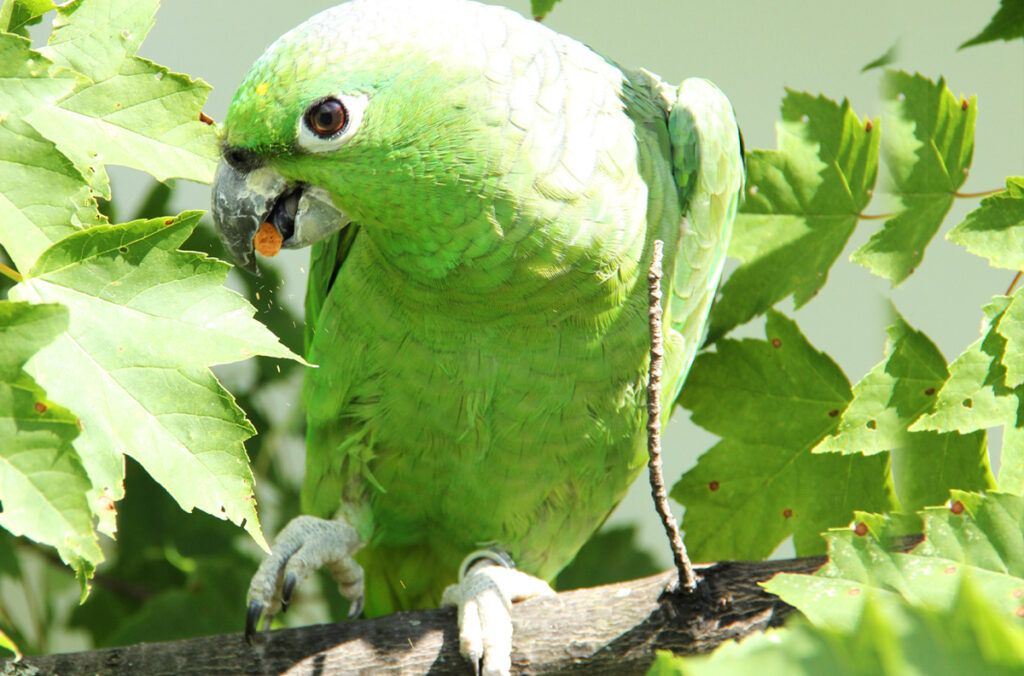
Did You Know?
Alternative Formula for Parrots…
- Provides proper nutrition for adult and senior parrots
- Is suitable for parrots who are less active, have dietary restrictions, or requiring a lower protein and fat content in their diet
- Is formulated without soy or corn, and includes alternate protein sources like peas, quinoa, and wheat germ to promote healthy feather growth
- Has higher levels of omega 3, 6, and Beta-carotene for optimal nutrition
- Goes through 3-step quality control measures and live feeding trials at the HARI facility
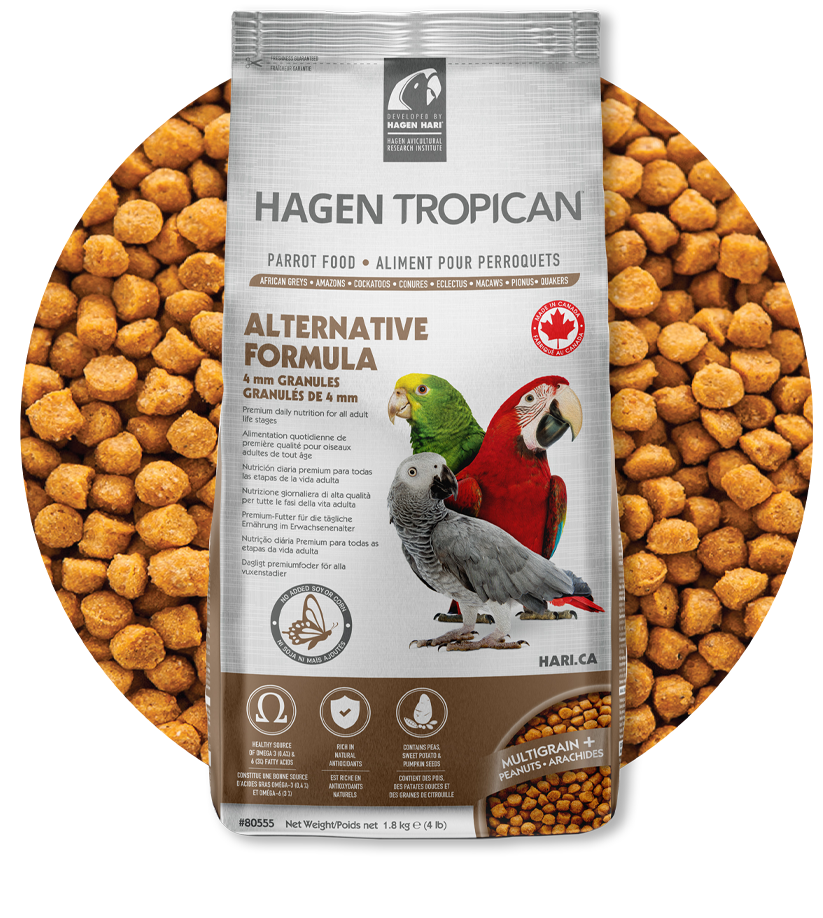
- Contains super ingredients like walnuts, maple syrup, cranberries, sunflower oil, sweet potato, wheat germ oil, pumpkin seeds, and marigold extract to enhance eye health, feather luster and color
- Is an excellent source of vitamins and minerals, and natural Omega and fatty acids from flaxseed
- Can be used as a base diet and complimented with enrichment foods
- Is pesticide and herbicide free to ensure the best for your bird.
- Is free from artificial preservatives, colors, and flavors
- Contains bentonite clay to support sensitive digestive systems
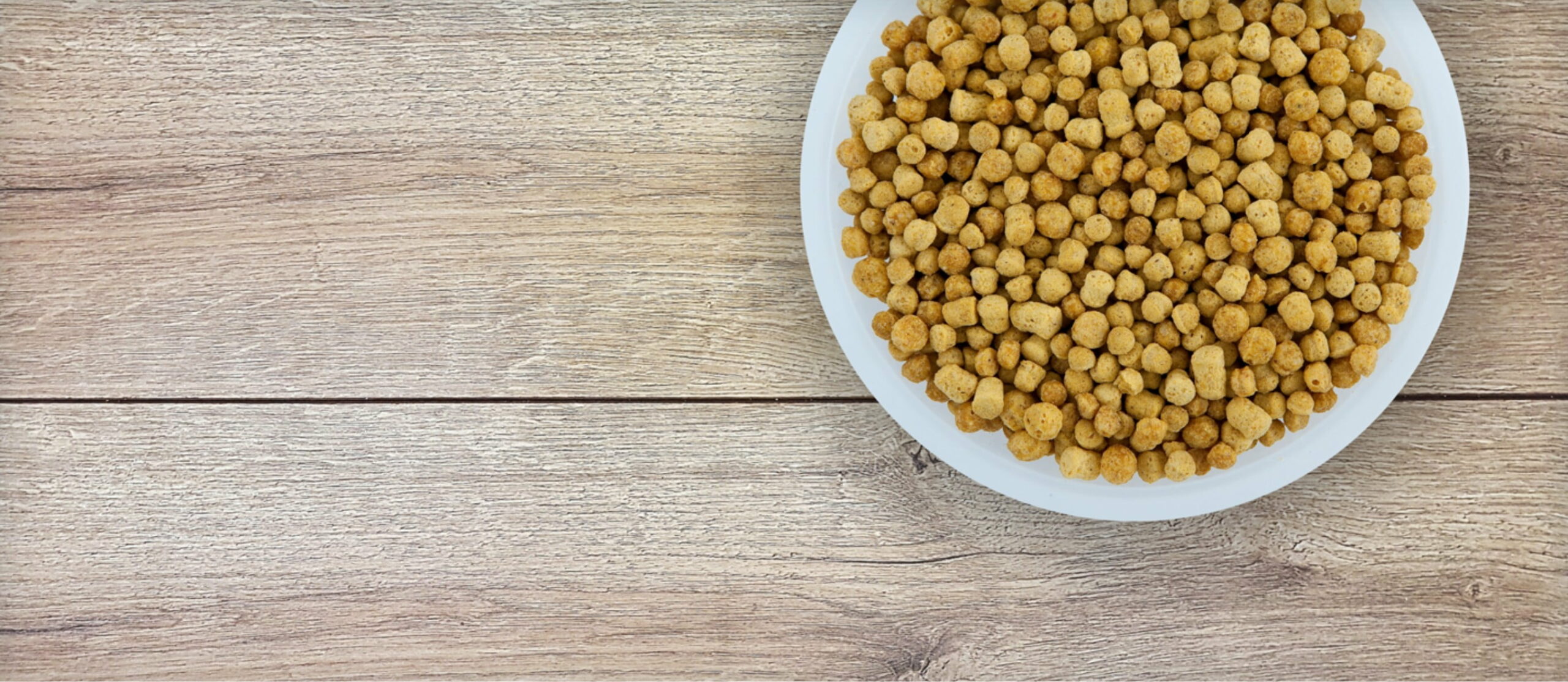
What sets Alternative apart from Lifetime and High Performance?
- Soy and corn-free formula
- Alternative protein sources: pea and quinoa
- Increased levels of omega 3, 6, and Beta-carotene
- Contains Bentonite Clay
- Healthy ingredients like walnuts, cranberries, sunflower oil, sweet potato, wheat germ oil, pumpkin seeds, maple syrup, and marigold extract
All of this results in optimum health and feather growth, vivid colors and luster!
Specifications
If you’re seeking suitable food alternatives for your adult and senior parrots, consider Tropican Alternative. This premium soy-free formula offers the necessary daily nutrition that your feathered friends need. Additionally, it’s an excellent option for parrots who have dietary restrictions, require lower protein and fat content, have less active lifestyles, or have protein sensitivities. It’s important to note that Tropican Alternative is not recommended for Toucans and other iron-sensitive species.
AFRICAN GREYS • AMAZONS • COCKATOOS • CONURES • ECLECTUS • QUAKERS • MACAWS • PIONUS
To ensure that your bird is receiving the necessary nutrients, feed it Tropican food every day in a clean food dish, taking into account the bird’s actual needs and spillage. Provide a fresh, clean supply of water daily.
It’s important to note that Tropican food is intended to be your bird’s primary diet. While fresh fruits, vegetables, and other treats are excellent sources of enrichment, limit them to 30% of your bird’s total diet. When used as directed, no additional vitamin or mineral supplements are necessary.
When introducing a new food, gradually mix it with the “old” food, by switching in 20% every week with current food. This will help prevent digestive upset and allow your bird to adjust to the new food. To keep things hygienic, discard any uneaten portions and clean the food dish before the next feeding.
Wheat, brown rice, pea protein, dehulled peanuts, sweet potato, barley, pumpkin seeds, montmorillonite clay, dried tomato, sunflower oil (preserved with mixed tocopherols), maple syrup, calcium carbonate, dicalcium phosphate, quinoa, yeast culture, dried kelp, cranberry, walnut, L-lysine, yeast extract, choline chloride, DL-methionine, green tea extract, wheat germ oil, lecithin, carotenoids, marigold extract, algae extract (source of DHA fatty acid), rosemary extract, biotin, vitamin E supplement, niacin, calcium L-ascorbyl-2-monophosphate, zinc oxide, manganous oxide, d-calcium pantothenate, vitamin B₁₂ supplement, beta-carotene, copper sulfate, pyridoxine hydrochloride, thiamine mononitrate, inositol, folic acid, vitamin A supplement, calcium iodate, sodium selenite, vitamin D₃ supplement.
Crude Protein (min.) 22%, Crude Fat (min.) 11%, Crude Fibre (max.) 3.5%, Moisture (max.) 11%, Ash (max.) 6.5%, Calcium (min.) 1%, Phosphorus (min.) 0.8%, Vitamin A (min.) 5,500 IU/kg, Vitamin D₃ (min.) 550 IU/kg, Vitamin E (min.) 220 IU/kg, Beta-Carotene (min.) 0.45 mg/kg, Omega-3 Fatty Acids (min.) 0.03%, Omega-6 Fatty Acids (min.) 0.25%.
Percentage of a whole: Aspartic Acid 1.16%, Threonine 0.69%, Serine 0.94%, Glutamic Acid 3.88%, Proline 1.25%, Glycine 0.8%, Alanine 0.8%, Cystine 0.29%, Valine 0.86%, Methionine 0.32%, Isoleucine 0.75%, Leucine 1.35%, Tyrosine 0.73%, Phenylalanine 0.92%, Lysine 1.02%, Histidine 0.5%, Arginine 1.46%, Tryptophan 0.2%.
Per 100 Grams of Protein: Aspartic Acid 8.83%, Threonine 3.78%, Serine 5.15%, Glutamic Acid 21.27%, Proline 6.85%, Glycine 4.39%, Alanine 4.39%, Cystine 1.59%, Valine 4.71%, Methionine 1.75%, Isoleucine 4.11%, Leucine 7.4%, Tyrosine 4%, Phenylalanine 5.04%, Lysine 5.59%, Histidine 2.74%, Arginine 8%, Tryptophan 1.1%.
Per 1000 kcal: Aspartic Acid 0.47%, Threonine 0.2%, Serine 0.27%, Glutamic Acid 1.13%, Proline 0.36%, Glycine 0.23%, Alanine 0.23%, Cystine 0.08%, Valine 0.25%, Methionine 0.09%, Isoleucine 0.22%, Leucine 0.39%, Tyrosine 0.21%, Phenylalanine 0.27%, Lysine 0.3%, Histidine 0.15%, Arginine 0.42%, Tryptophan 0.06%.
3,459 kcal/kg (Calculated ME)

4 mm Granules
80555 – 1.8 kg (4 lb)
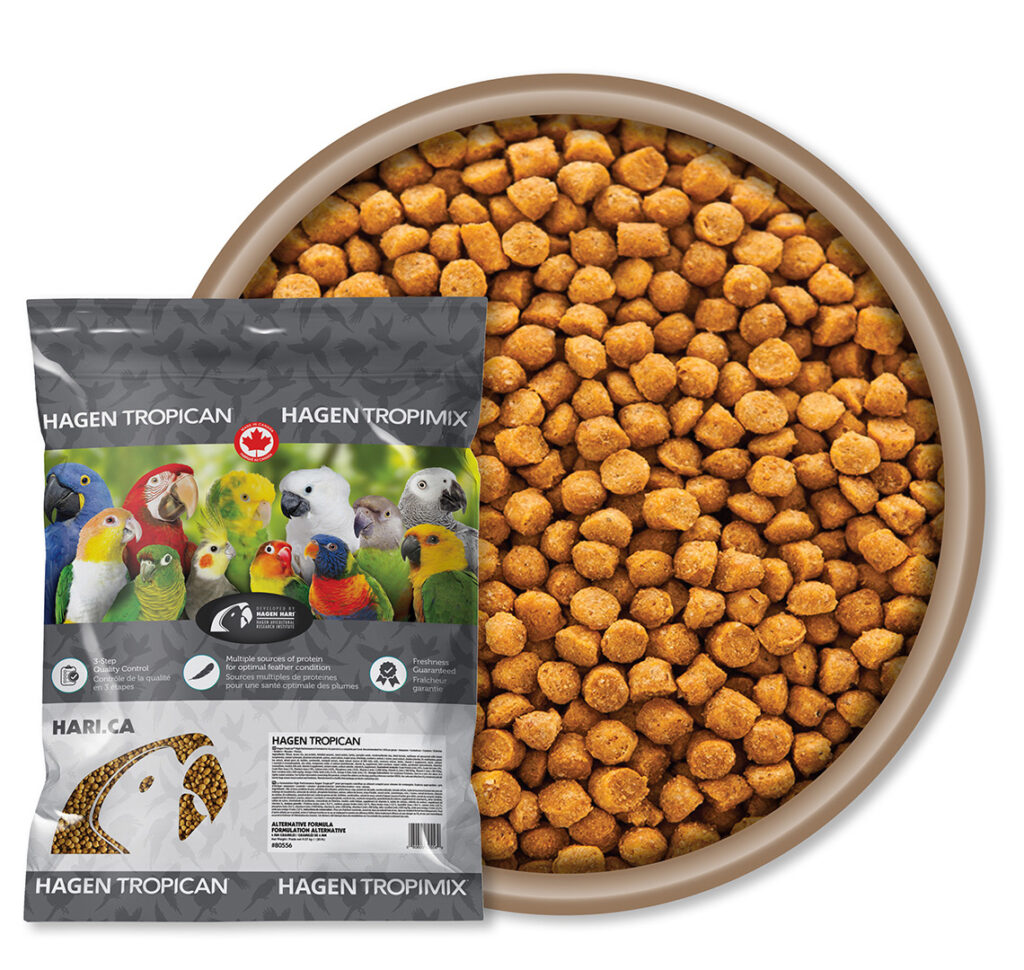
4 mm Granules
80556 – 9.07 kg (20 lb)
For maximum freshness, once opened, store the sealed bag in a sealed container in a cool, dry place. Our safe and effective CO2 treatment and air barrier bags ensure insect control and freshness.
Manufactured in a facility that packages products containing known priority allergens.
Feeding Resources
Companion Parrot Weight Chart
Keeping track weekly of your birds weight
is vital to their overall health.
Extruded Diet Conversion Guide
Helpful tips and methods to transition your bird
to a balanced extruded diet.
Parrot Feeding Recommendations
Do you know the daily recommended
amount of food for your bird?
Want To Know More?
Proudly Canadian Made
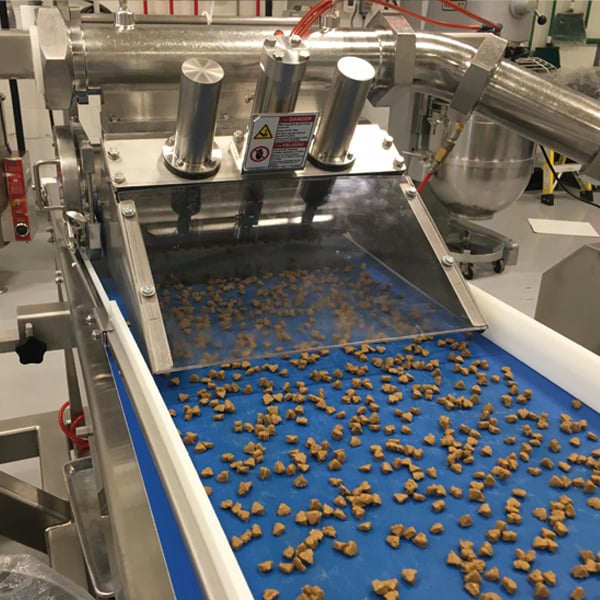
Our 3-Step Quality Control Process
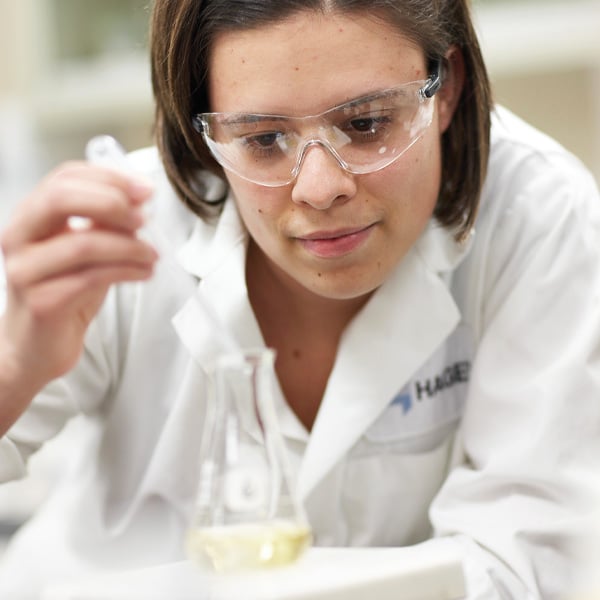
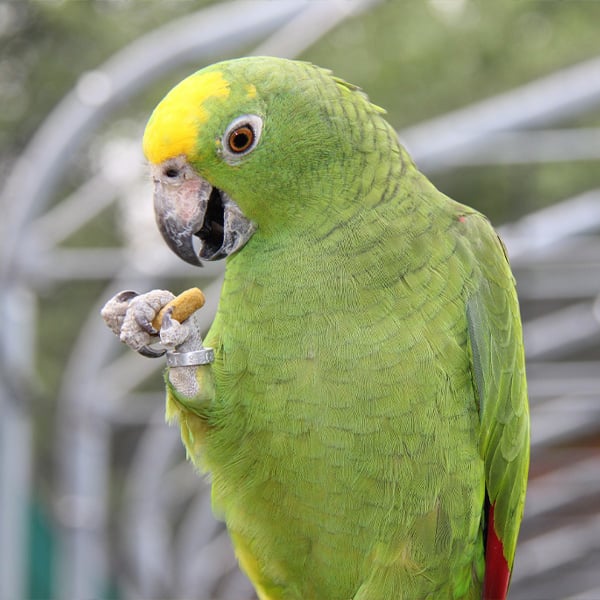
Learn More About Feeding & Nutrition
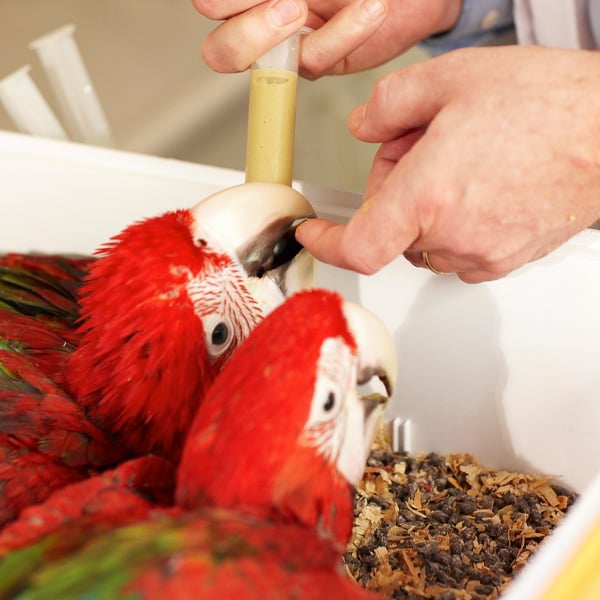
Avian Nutrition: Trends & Philosophies
Related Articles
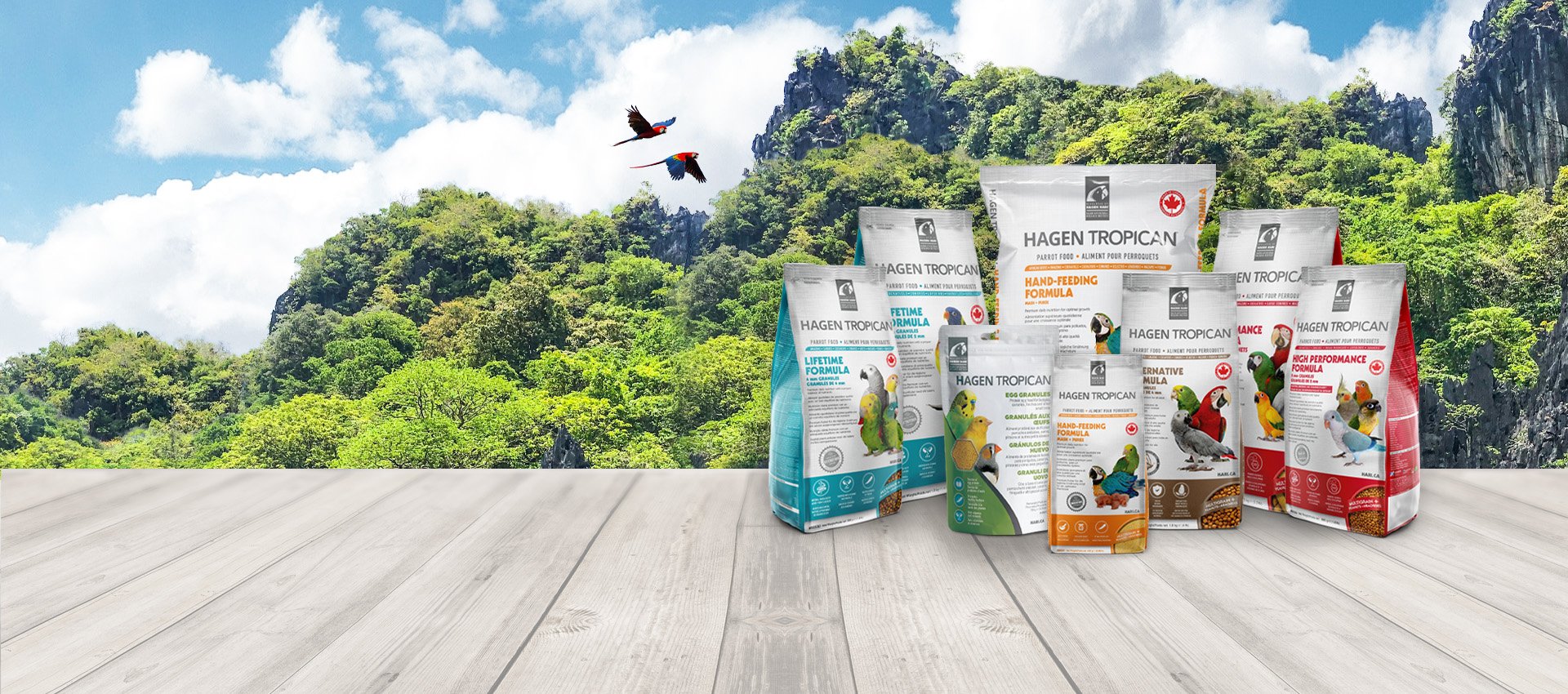
Choosing the perfect formula for your pet bird.
Companion parrots require a balanced diet that contains a nutritious blend of grains, seeds, nuts, vegetables, fruits, vitamins and minerals. Pet parents also need to consider the species, life stage and lifestyle of their pet bird.


